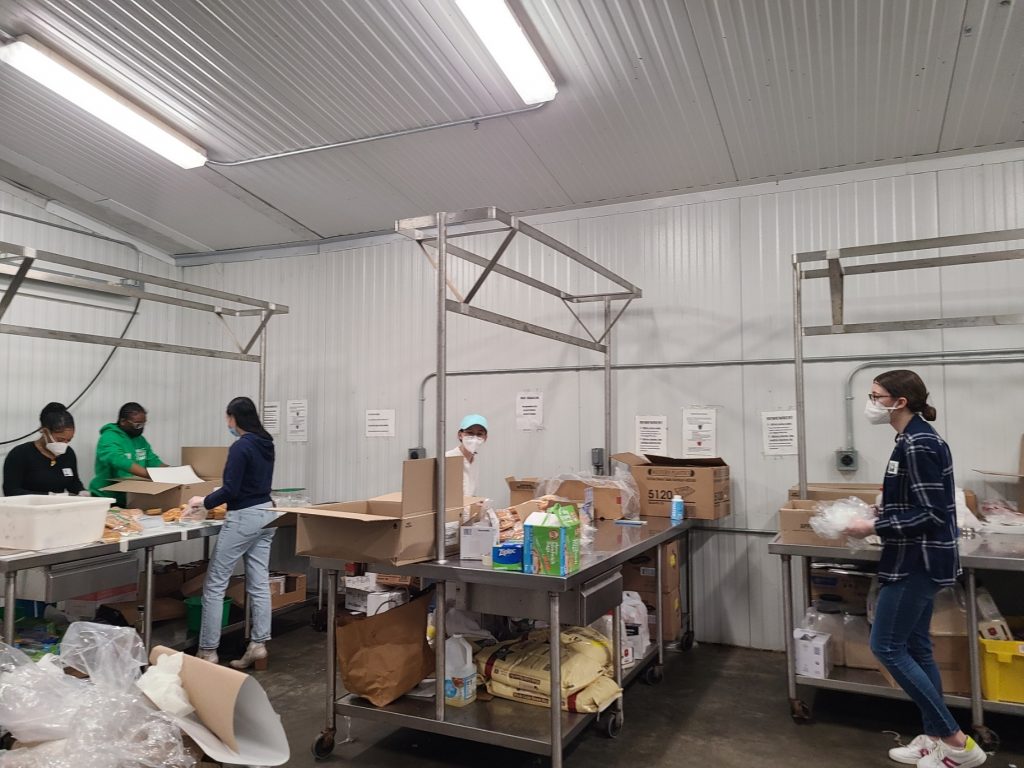Today six of us went to the Maryland Food Bank, where Paul, the volunteer coordinator, warmly welcomed us. After a brief tour of the food bank, he directed us to the kitchen, where we worked to help the head chef, Terrance, pack lunch for the school students. We were assigned in groups to pack ham salad in small containers and buns in a zip-lock bag. Some of us connected with the staff, who seemed to enjoy working with other staff members with good music in the kitchen. Working in the food bank and at the Daily Bread soup kitchen yesterday showed different modes of tackling food insecurity. Working in the soup kitchen provided a hands-on experience of serving and making hot lunch for walk-in people. The lunch includes a nutritious meal with dessert accompanied by sweet black tea, which all community members were very fond of. Working on packing lunch for school students left us with a sense of wonder about how these foods will be supplied, while appreciating the work and energy of other volunteers and staff put into serving the community.

Our day was occupied with visits to religious places of worship, such as our visit to the synagogue after our shift at the Daily Bread and our visit to the Mosque after serving at the MD Food Bank. Impact on people’s diet based on religion plays an essential role in addressing food security. Our visit to the Synagogue and the Mosque has helped us understand the intersectionality and importance of faith and food, which is often unnoticed.
As food is a huge component in our day-to-day lives, religious institutions, through their holy books, are trying to make people aware of generosity, sharing resources with people in need, and being mindful of what we consume. Through some exposure to Judaism and Islam, religious leaders brought shared common ground with other religions. For instance, in Judaism, one of the important concepts that guide Jews to charity and help less fortunate people with compassion is Tzedakah. Similarly, among the five main pillars in Islam, Zakat, which means giving to charity, also plays an integral role in being a Muslim. Both religions guide people to help people in need. Similarly, in Hinduism and Buddhism, we believe in Dana, a selfless charitable act to help others in need. In Jewish law, another religious concept that can be applied for work done for food security is Tithing.Today, we can see work such as distributing food in Daily Bread, donating supermarket surplus such as a donation to MD Food Bank, reducing food waste, and donating to people before it goes to waste.
Our host, Khaled, encouraged us to think about how these religious interconnections have provided an integral basis for humans to help others in need, which are contradictory to human nature, exclusively defined by the concept of “survival of the fittest,” making humans selfish and hungry for power and resources. Visiting various religious places and learning from religious leaders and community members through verbal or volunteering opportunities have shown various ways in which food insecurity is addressed in Baltimore.